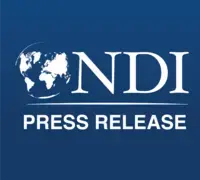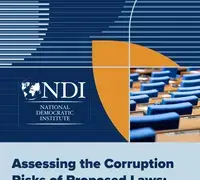Resources


NDI Concludes First Pre-Election Assessment Mission in Georgia and Presents Recommendations Ahead of October 26 Elections
Tbilisi, Georgia - The National Democratic Institute (NDI) deployed the first of two pre-election assessment missions (PEAM) to Georgia from February 19 to 25, 2024 in advance of the parliamentary elections to be held on October 26, 2024.

A Human Rights Challenge in Access to Education in North Korea: Contradiction Between Laws and Reality
This two-part report, conducted by Daily NK and Unification Academy (UA) in partnership with NKnet, shows the systematic barriers and current discriminatory practices that exist in North Korea that limit access to education for all citizens. In addition, both reports reveal the intertwined nature of human rights issues that are embedded within the education system such as discrimination against children and women, forced labor, and songbun and social classification system 53.

NDI Begins International Pre-Election Assessment Mission Ahead of Georgia’s 2024 Parliamentary Elections
WASHINGTON, D.C. - The National Democratic Institute (NDI) announced today the start of its Pre-election Assessment Mission (PEAM): a series of high-level meetings ahead of the 2024 Georgian parliamentary elections designed to assess the electoral environment.

NDI statement on Death of Russian Opposition Leader Alexei Navalny
We are shocked and saddened by the news of Alexei Navalny’s death on Friday while serving a decades-long prison sentence in an Arctic penal colony. Alexei Navalny was a staunch advocate for a democratic Russia, and courageously continued his work for years despite incredible pressure and repeated threats to his life. His powerful voice for freedom was too much for those who silenced him.

Assessing the Corruption Risks of Proposed Laws: A Parliamentary Corruption-Proofing Guide
Parliaments play an essential role in preventing corruption, including through a sound legislative process and rigorous legal drafting. The risk of corruption increases when the legislative process is opaque or the resulting laws include imprecise definitions, weak enforcement powers, ambiguous accountabilities, or excessive exemptions. There is also the possibility that the law itself was written with corrupt intent or to benefit a select group or harm others.
